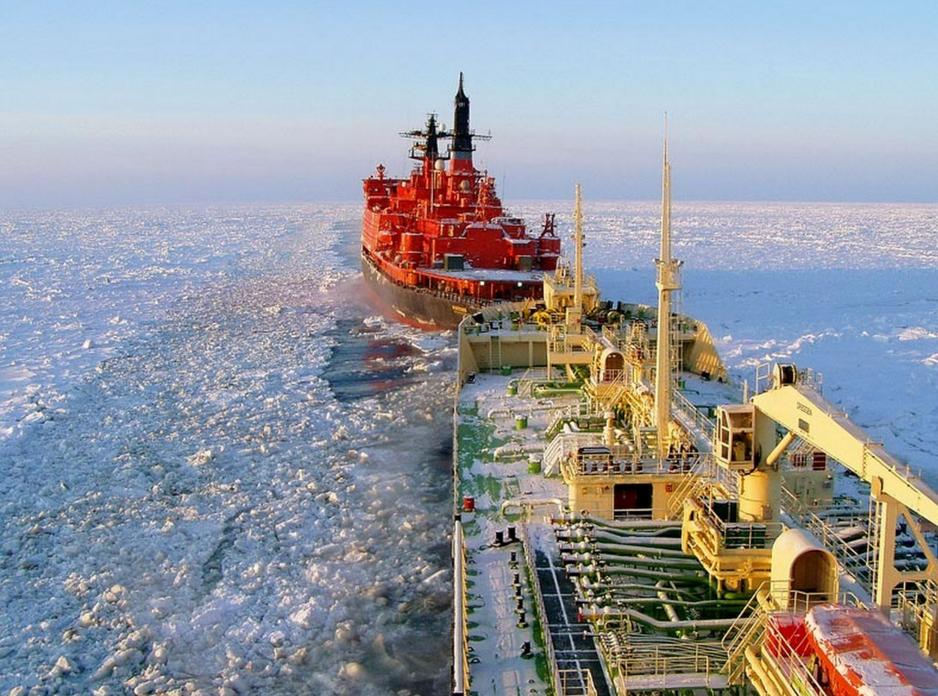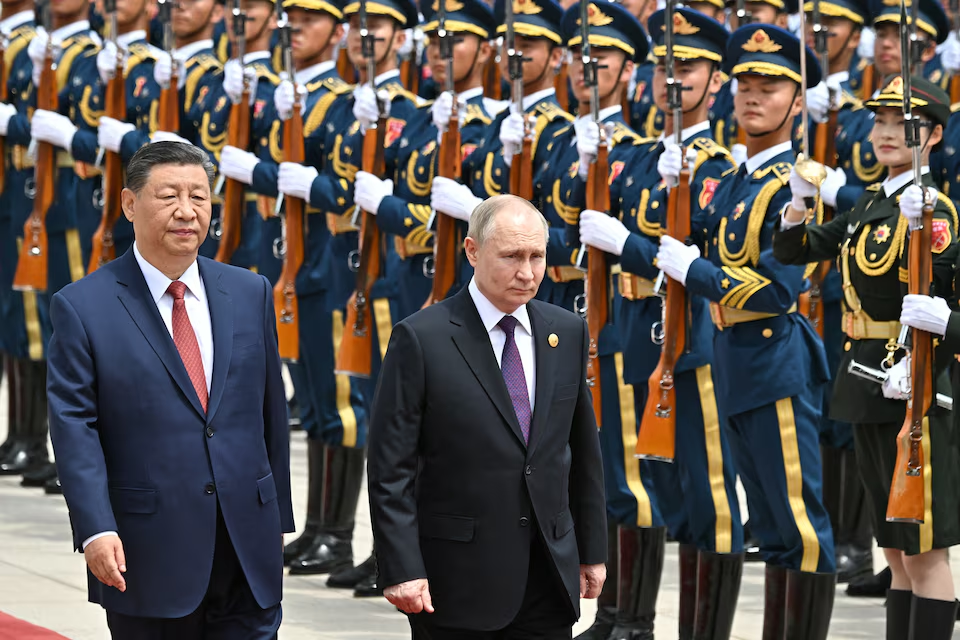
Russia recently invited China to collaborate to develop the Northern Sea Route (NSR) and create an ice-class merchant fleet.
This cooperation was stressed at the fifth meeting of the Russian-Chinese Commission on developing the Russian Far East and Northeast China, held in Vladivostok. Deputy Prime Minister Yuri Trutnev emphasized Russia’s efforts to enhance the NSR’s cargo flow.
Following the successful completion of eight initial voyages by Chinese firms along the NSR in 2023, Russia proposed further plans for expanding the route’s infrastructure.
This collaboration is amid growing ties between China and Russia, especially after Western sanctions on Russia due to its invasion of Ukraine. These sanctions have driven Russia closer to China, with China becoming a key financial partner and economic support for Moscow.
Historical Ties Between Russia & China
Since the early communist movement, the Soviet Union and China had strong ties. But, their relationship worsened in the 1960s and hit a low in the 1970s. After the Soviet Union’s collapse, they renewed their ties to counter US dominance.
Despite their common adversary in the US, China and Russia have not historically trusted each other deeply. Their leaders and officials lack a longstanding history of collaboration and mutual trust.
For example, after over a century of dispute, Russia ceded about half of Bolshoi Ussuriysky Island to China in 2008, along with Tarabarov Island, abandoning its army base there.
China agreed not to claim more territory from Russia, but in its 2023 map, China again claimed the entire island, which Russia rejected.
Despite past border conflicts, China has become a crucial partner for Russia, especially in the current geopolitical context. Both nations share the goal of challenging the international rules-based order.
China-Russia Economic Ties

Despite Western sanctions from the Ukraine war, Russia has transitioned to a high-income economy, according to the World Bank, highlighting its resilience.
Trade between Russia and China has grown significantly since 2002, starting at nearly $12 billion and reaching $130.1 billion in 2021. 2022 trade increased by 35.9% to a record $190 billion.
In 2023, bilateral trade reached $240 billion as China capitalized on opportunities left by Western companies, increasing its trade with Russia.
Russia’s dependence on China for critical goods surged from 32% in 2021 to 89% in 2023. China is now Russia’s leading source of technology and consumer imports, while Russia exports affordable energy to China.
China’s trade relationship is essential for Russia’s economy, serving as a lifeline. China provides commercial goods and dual-use components subject to Western export controls, supporting Russia while maintaining plausible deniability.
China also benefits from this relationship, relying on foreign tourists and investment to remain the world’s second-largest economy and significantly benefiting from Russian energy imports via the Siberian pipeline.
Defence Ties
While there is no direct evidence of China selling arms to Russia, accusations have been made about Chinese assistance to Russia’s military.
In May 2024, British Secretary of State for Defence Grant Shapps claimed the UK has evidence of China providing “lethal aid” to Russia in their collaboration on combat equipment for the Ukrainian conflict, as reported by VOA News.
Previously, Washington accused China of supplying critical components to Russia’s military since its full-scale invasion of Ukraine in 2022. These components, including microelectronics, have been used in tanks, missiles, and other weapons.
A US intelligence assessment from April 2024 revealed that China has significantly increased exports of machine tools, microelectronics, and other technologies to Russia, crucial for Moscow’s military equipment production.
US National Security Advisor Jake Sullivan expressed concern in May 2024 about China’s contributions to Russia’s defence industry.
In 2023, China accounted for about 90% of Russia’s imports of goods covered under the G7’s high-priority export control list.
CNN reported that China is aiding Russia in significantly boosting its defence industrial capacity, enabling Moscow’s most extensive military manufacturing expansion since the Soviet era amid the ongoing Ukraine conflict.
Chinese support includes considerable supplies of machine tools, drone and turbojet engines, cruise missile technology, microelectronics, and nitrocellulose used in weapon propellants. Chinese and Russian entities are also collaborating on drone manufacturing in Russia.
Even before the Ukraine conflict, increased defence cooperation between Russia and China was apparent. They have long engaged in consultations on Northeast Asian security and have conducted numerous joint air and naval exercises.
Recently, China and Russia held live-fire naval exercises named ‘Maritime Cooperation – 2024’ in the South China Sea.
‘No Limits’ Partnership

In February 2022, China and Russia declared a “no limits” partnership just days before Putin deployed troops to Ukraine.
In May 2024, Putin’s first foreign trip after assuming the presidency for the fifth time was to China, at President Xi Jinping’s invitation. During this visit, Putin stressed the importance of strengthening strategic ties and his relationship with Xi Jinping, praising the growth in bilateral trade.
Although Putin stated the partnership “is not directed against anyone,” he was addressing specific concerns.
Interestingly, the term “limitless” was absent from government media this time, indicating a shift. China is redefining its strategic partnership with Russia within certain boundaries.
Besides China, North Korea has also emerged as a strategic partner for Russia despite its isolation from much of the world.
In September 2023, North Korea agreed to provide weapons to support Russia’s efforts in Ukraine, while Russia offered technical assistance for North Korea’s missile program.
According to US State Department assessments, North Korea has sent over 11,000 containers of weapons to Moscow since their 2023 meeting. This arrangement provides Russia with needed ammunition and offers North Korea financial support.
However, Chinese President Xi Jinping reportedly has reservations about the growing closeness between Russia and North Korea.
Despite historical mistrust and challenges, the partnership and trade between China and Russia are steadily strengthening.
Their relationship becomes more complex with North Korea’s involvement, adding another layer to the dynamics between these nations. This strategic alliance, often seen as a “BFF” (Best Frenemy Forever) relationship, is closely monitored by countries like the US and India, recognizing its significant global implications.





